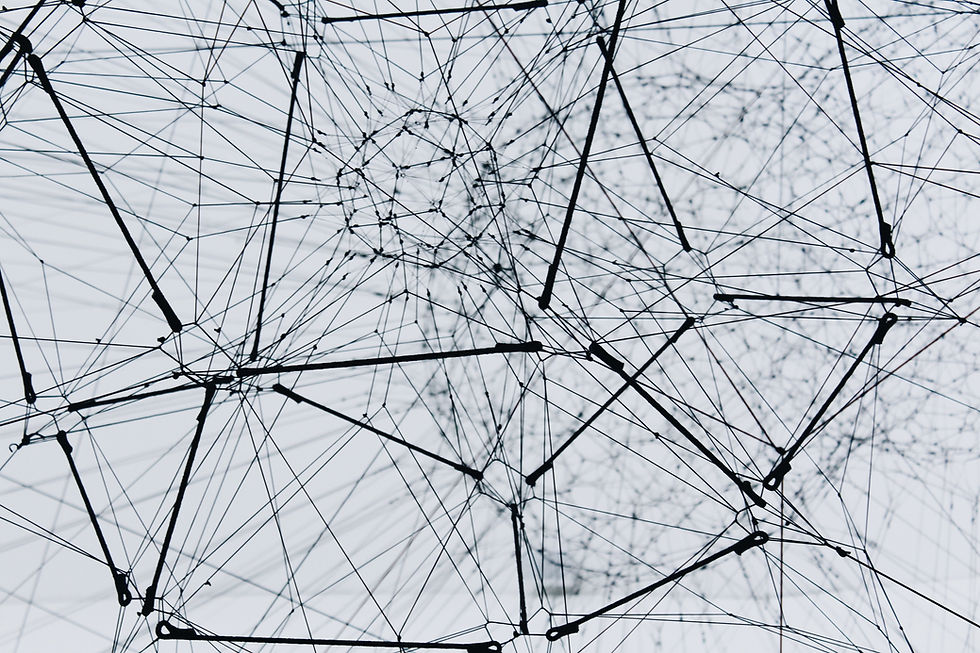The Course that Changed my Life
- Lex Enrico Santí, LCSW, MFA
- Mar 2, 2023
- 3 min read
When I was a sophomore, I took a class that changed my life and continues to guide my value system and worldview. You can’t take this course today — not here at Cornell. In fact, it was never offered here at Cornell. It has been taught at Drexel University, Hobart and William Smith College and today a version of the course is taught at Union College. I took it at Hobart and William Smith and went on to teach the class for two years. The course has had many names, but the name I learned to appreciate was: “Making Connections,” or MC for short. MC is an experiential learning course based around systems of oppression in society. It was a course created by men and women who worked and studied at Cornell University, and it taught me how to live.
The key tenet of the course is that there is no hierarchy of oppression. Each form of oppression is equal to any other, as opposed to there being one that is the most important to solve. Further, it taught me that as long as you have one form of oppression you will have all the others; there is no “solving” racism, for example, unless we solve all forms of oppression. The course taught me how to dissect different types of societal oppression and recognize the historical implications and similarities one type has with the others. Students learned their roles in breaking the cycle of oppression, as well as the stereotypes and misinformation associated with different groups of people.
For an entire semester, myself and a group of 60 other students, faculty and staff members gathered for three hours to talk about understanding what the individual experiences. We would tackle an “ism” a week: Racism, Ageism, Ableism, Sexism, Heterosexism, Anti-Semitism and Classism, making interconnections between them all. Each ism has a relation to power and access to privileges. With sexism, for example, the group in power is men and called the “included group.” Therefore, the excluded group is women.
Each class began with a historical understanding of the roots of the oppression, typically a 45 minute lecture supported by readings and class discussion. We then separated into affinity groups. For example, women talked to one another about their experiences and vice versa with men. We were allowed to work through our experiences with oppression with others privately, without judgement and without being forced to defend our experiences. No matter the ism we were discussing, I always felt like I learned something valuable about my experience in the world.

Then something more remarkable would occur: We would come back together as a group and the excluded group would speak to the included group about their experiences. This was something radically powerful about this class, and it allowed us to share personal stories that transformed opinions. How often have I, as a man, been able to listen to all of the ways that women are impacted by sexism? How often have I been able to share the ways in which I have been personally impacted by racism in my life? How often have I had the opportunity to speak to a group of thoughtful, patient potential allies? Reflecting back on the class now, it seems remarkable that we did this every week.
Here’s what I want you to know: This course changed lives. It allowed many young men and women to be heard. The course allowed a community to come together to address day-to-day experiences. It transformed what was before, to some, an “us versus them” community into a “we’ community.
The course has continued to shape my life. When I was in the Peace Corps I saw these struggles with oppression play out in ethnic tensions between Hungarians and Romanians. The class guided my work with NGOs in Cambodia that combat sex trafficking. I see the value of it today, whether we are discussing the role of a diversity curriculum at Cornell, forming coalition groups to combat sexual assaults on campus or even unpacking the messy and hyperbolic humor of Seth McFarlane at the Oscars. Like I said, it is a course that you can’t take here at Cornell but that was created by administrators at the University, taught at three different universities and maybe, just maybe, it would give our community an opportunity they may never get anywhere else.



Comments